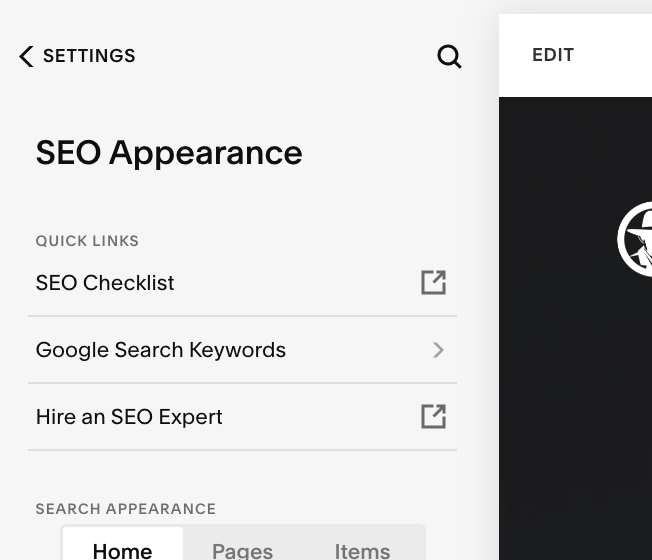
Jan 9, 2025 | ChatGPT, SEO, SEO Tips

As someone who runs an SEO company in San Diego, I’ve seen firsthand how artificial intelligence (AI) is reshaping the SEO landscape. It’s exciting, but let’s be honest—it’s a little overwhelming too. Tools like ChatGPT and Bard (aka Gemini have revolutionized how we approach content creation, keyword research, and audience analysis. If you’re looking to stay ahead in this rapidly changing field, buckle up, and let me guide you through the strategies you need.
The Role of AI in Modern SEO
What Is AI’s Role in SEO?
AI is like having a digital assistant who never sleeps. It analyzes patterns, predicts trends, and optimizes processes that used to take hours (or even days) to do manually. Whether it’s generating topic ideas, analyzing competition, or fine-tuning technical SEO, AI is the backbone of modern strategies.
My Journey with AI Tools
I’ll admit, when I first tried AI tools like ChatGPT, I was skeptical. How could a machine truly “understand” what makes content engaging? But after using it to brainstorm keywords for a local restaurant client, I was hooked. Not only did it save time, but it also uncovered opportunities I hadn’t even considered.
AI Tools That Are Game-Changers
ChatGPT for Content Creation
ChatGPT has become my go-to for generating engaging, SEO-optimized content. It’s particularly helpful when I’m drafting blog posts or rewriting web pages. For example, I used it to help create a 2,000-word guide for a San Diego real estate client, packed with keywords and valuable insights.
Gemini (formerly known as Bard) for Keyword Research
Google’s Gemini currently as of Jan 2025 (formerly known as Google Bard) Gemini is a powerful ally for keyword research. I recently used Bard to help a local moving company identify high-volume, low-competition keywords. Within weeks, their website started climbing search engine rankings.
Surfer SEO and Other Integrations
Pairing AI with tools like Surfer SEO ensures that every piece of content aligns with search intent and current ranking factors. These integrations provide real-time recommendations, like tweaking headings or adding more authoritative links.

How AI Simplifies Keyword Research
Finding Long-Tail Keywords
AI doesn’t just find keywords—it finds the right keywords. Tools like ChatGPT can generate long-tail keywords tailored to local searches, like “best tacos in San Diego Gaslamp Quarter.”
Predicting Search Trends
AI is great at predicting emerging trends. For example, I noticed a rise in searches for “eco-friendly moving services” and used AI insights to guide my client’s content strategy. This proactive approach set them apart from competitors.
Personalized Content at Scale
Why Personalization Matters
Generic content doesn’t cut it anymore. AI helps me craft highly personalized, location-specific content that resonates with readers. When working with a San Diego medspa client, I used AI to identify the most-searched treatments in different neighborhoods, ensuring every blog felt locally relevant.
Automating Content Creation
AI tools can produce high-quality content drafts in minutes. While I always edit to maintain a personal touch, AI helps streamline the process so I can focus on strategy.
Technical SEO Made Easy
Fixing Common Website Issues
AI-powered tools like Screaming Frog and SEMrush identify broken links, slow-loading pages, and other technical issues in seconds. This saves countless hours of manual audits.
Enhancing User Experience
AI helps optimize website layouts, mobile responsiveness, and navigation. I’ve used AI insights to redesign a client’s site, cutting bounce rates by 40%.
Local SEO and AI
Optimizing for San Diego Searches
Local SEO is my bread and butter, and AI tools make it easier than ever to dominate local search results. For instance, I’ve used AI to fine-tune Google My Business profiles for San Diego-based clients, ensuring their listings rank for “near me” searches.
Geotargeted Content Strategies
AI can analyze local search data to uncover what topics resonate with your target audience. Whether it’s surf lessons in Pacific Beach or the best vegan spots in Hillcrest, AI ensures your content hits the mark.
FAQs
Q1: Can AI replace an SEO expert?
No, AI is a tool that enhances what SEO experts do. It streamlines processes but still requires human creativity and strategic thinking.
Q2: How do I choose the best AI tool for SEO?
Start with versatile options like ChatGPT for content creation and Bard / Gemini for keyword research. Experiment and see what aligns with your needs.
Q3: Does AI work for small businesses?
Absolutely. AI is perfect for small businesses looking to optimize their SEO without a huge budget.
Q4: What’s the biggest challenge with AI in SEO?
Ensuring the content feels authentic and resonates with the audience. AI-generated drafts need editing for a personal touch.
Q5: How do I start using AI for SEO?
Begin with free tools like ChatGPT or trial versions of premium software like Surfer SEO. As you get comfortable, expand your toolkit.

Staying Ahead of AI Trends
Continuous Learning
The SEO world is constantly evolving, and so are AI tools. I dedicate time each month to testing new features and updates, ensuring my strategies are cutting-edge.
Collaboration, Not Replacement
AI won’t replace human creativity—it enhances it. My most successful campaigns blend AI-driven insights with a human touch.
AI is a game-changer for SEO in San Diego. It streamlines processes, uncovers new opportunities, and keeps us ahead of the curve. But remember, the key to success is combining AI’s efficiency with your unique expertise and creativity. If you’re ready to elevate your SEO strategy, let’s connect—I’d love to help you navigate this exciting new landscape.
Schedule a free consultation today! Call or text (619) 719-1315.

Dec 5, 2023 | SEO, SEO Tips
Boost Your TripAdvisor Visibility: A Jen Ruhman Guide to Mastering SEO for Your Business Listing

Why TripAdvisor Matters for Your Business
The Power of Online Reviews
In today’s digital era, TripAdvisor has emerged as a pivotal platform for businesses in the hospitality and travel sector. Its vast user base and influence make it an essential tool for enhancing visibility and attracting potential customers. But how do you ensure your business stands out on TripAdvisor? The answer lies in effective SEO strategies tailored for TripAdvisor.

Understanding TripAdvisor’s Algorithm
How TripAdvisor Ranks Businesses
Key Factors Influencing Your TripAdvisor Ranking
TripAdvisor’s algorithm is a complex system that decides how businesses are ranked. Understanding the factors that influence this ranking, such as the quality and quantity of reviews, the recency of reviews, and user engagement, is crucial for optimizing your TripAdvisor profile.
Crafting a Winning TripAdvisor Profile
Essential Elements of Your Profile
Optimizing Each Component for Maximum Impact
A compelling TripAdvisor profile is more than just a list of services. It involves a strategic presentation of your business, including high-quality images, detailed descriptions, and a complete listing of amenities and services. Each element should be optimized to improve your search visibility on TripAdvisor.
Leveraging Reviews for Higher Rankings
Encouraging Customer Reviews
Responding to Reviews: A Key SEO Strategy
Reviews are the lifeblood of TripAdvisor SEO. Encouraging your customers to leave reviews and responding to them promptly and professionally can significantly boost your TripAdvisor ranking.
Building a Strong Online Presence Beyond TripAdvisor
Linking Your TripAdvisor Profile to Your Website
Social Media Integration and Its Benefits
Having a robust online presence is vital. Linking your TripAdvisor profile to your website and integrating it with your social media platforms can drive more traffic and improve your overall online visibility.
Local SEO and Its Impact on TripAdvisor Rankings
Understanding the Role of Local SEO
Tips for Boosting Local SEO for Your TripAdvisor Profile
Local SEO plays a significant role in TripAdvisor rankings. Ensuring your business is listed accurately on local directories and maps, and using location-based keywords in your TripAdvisor profile, can enhance your visibility to local audiences.
Advanced TripAdvisor SEO Tactics
Utilizing Keywords Effectively
Harnessing the Power of Visual Content
While TripAdvisor isn’t a traditional search engine, using relevant keywords in your profile and review responses can help. Additionally, high-quality visual content can significantly enhance user engagement and SEO performance.
Monitoring and Analyzing Your TripAdvisor Performance
Tools and Techniques for Tracking Success
Making Data-Driven Decisions
Regularly monitoring your TripAdvisor performance using analytics tools can provide valuable insights. This data can help you fine-tune your SEO strategies and make informed decisions to improve your ranking.
- Stay Fresh and Updated: Keep your listing as current as your business. New services? Changed your hours? Tell the world.
- Show Off Your TripAdvisor Street Cred: Got awards or high ratings? Flaunt them on your website and in your marketing. It’s like wearing a badge of honor.
- Be a Local SEO Hero: Make sure your business is listed correctly on Google Maps and other local directories. It’s a sneaky way to boost your TripAdvisor game.
Conclusion: Maximizing Your TripAdvisor Potential
The Continuous Journey of TripAdvisor SEO
Embracing Change and Staying Ahead
TripAdvisor SEO is an ongoing process. Staying updated with the latest trends, continuously optimizing your profile, and actively engaging with your audience are key to maintaining and improving your TripAdvisor ranking.

Are you eager to bestow the gift of SEO on your business or perhaps a friend?
Getting started is a breeze. Just reach out to me, and let’s chat about boosting your online presence together.
Contact me, Jen Ruhman, for SEO Services:
Give me a Call or Text at:
(619) 719-1315
Based in: San Diego, CA Hire me today, and let’s jumpstart your website’s SEO adventure!

Nov 29, 2023 | SEO

In the ever-evolving digital landscape, SEO stands as a pivotal element of online success, a gift that continually contributes to long-term growth. In this comprehensive article, we’ll delve into why SEO is an invaluable asset for businesses and individuals alike.
Understanding SEO: A Brief Overview
What is SEO?
SEO, or Search Engine Optimization, is the practice of optimizing web content to rank higher in search engine results. This involves leveraging various techniques to make your website more attractive to search engines like Google.
Why is SEO Important?
In a digital age where the majority of online experiences begin with a search engine, being visible on search engines is crucial. It determines whether your site is found by potential customers or lost in the vast expanse of the internet.
The Longevity of SEO Benefits
Sustainable Online Presence
Unlike paid advertising, which stops the moment you stop paying, SEO offers lasting results. A well-optimized site continues to rank and attract traffic over time, making it a sustainable digital asset.
Evolving with Search Algorithms
Search engines continually update their algorithms. A solid SEO strategy evolves with these changes, ensuring your site remains relevant and visible.

How SEO Fuels Business Growth
Attracting Quality Traffic
SEO isn’t just about attracting more traffic; it’s about attracting the right traffic. Optimized content targets specific demographics, leading to more qualified leads.
Building Brand Credibility
Ranking high in search results also builds trust. Users tend to perceive top-ranking sites as more credible and authoritative in their field.
SEO: Beyond Rankings
Enhancing User Experience
SEO involves optimizing the user experience. A site that’s easy to navigate and quick to load not only ranks better but also keeps visitors engaged.
Local SEO: Connecting with Local Audiences
Local SEO helps businesses connect with local customers. This is crucial for brick-and-mortar businesses looking to drive foot traffic.
The Compound Effect of SEO
Long-Term Returns
SEO is like planting a seed that grows over time. The efforts you put in today continue to yield benefits, often multiplying as your online presence strengthens.
Adaptability to Market Changes
As market trends change, a well-optimized site can quickly adapt, keeping you ahead of competitors.
Long-Term Strategy of SEO:
SEO is considered a long-term strategy because it involves building a strong online presence that endures over time. Unlike paid advertising, which can give immediate but often temporary results, the benefits of SEO grow gradually and last longer. This is because SEO focuses on organic growth by improving your website’s relevance and authority in your industry or niche. As you consistently apply SEO strategies, such as content creation, link building, and on-page optimization, your website becomes more favorable in the eyes of search engines, leading to sustained visibility and traffic.

Benefits for Small Businesses:
Small businesses can significantly benefit from SEO. It’s a cost-effective way to compete with larger companies without needing a huge advertising budget. SEO helps level the playing field by allowing small businesses to showcase their expertise and relevance in their niche. By focusing on specific keywords, local SEO, and providing valuable content, small businesses can attract targeted traffic and build a loyal customer base, which is crucial for growth and competitiveness.
Frequency of Updating SEO Strategies:
SEO strategies should be updated regularly. Search engines like Google frequently update their algorithms to provide the best user experience. These updates can affect how websites are ranked. To maintain or improve your search engine rankings, it’s important to stay informed about these changes and adapt your SEO strategies accordingly. This might involve updating your website’s content, improving site speed, enhancing mobile-friendliness, or refining your keyword strategy.
Relevance for All Types of Businesses:
SEO is relevant and beneficial for virtually all types of businesses that aim to have an online presence. Whether you run a local brick-and-mortar store, an e-commerce website, a B2B service, or any other type of business, SEO can help you reach your target audience online. It increases your visibility in search engine results, which is essential for attracting potential customers who are searching for products or services like yours.
Beyond Keywords:
While keywords are a fundamental aspect of SEO, they are just one part of a much broader strategy. SEO also involves optimizing website structure, improving page load speed, ensuring mobile-friendliness, creating high-quality and relevant content, acquiring reputable backlinks, and enhancing the overall user experience. Each of these elements plays a crucial role in how search engines evaluate and rank your site, and they collectively contribute to a successful SEO strategy.
SEO is indeed the gift that keeps on giving.
It’s an ongoing process that helps maintain and improve online visibility, ensuring your business remains relevant and competitive in the digital world.

Elevate Your Business Success with the Gift of SEO
Are you searching for a prestigious business gift that truly makes an impact? Look no further! I am Jen Ruhman, an SEO expert based in sunny San Diego, and I’m here to offer you the ultimate business gift – professional SEO services.
Imagine gifting your business, or even a fellow business owner, with a gift that keeps on giving. SEO is not just a service; it’s an investment in your business’s future. With my expertise, your website will climb the ranks in search engine results, drawing in more traffic, leads, and ultimately, success.
Why choose my services? Here’s why:
- Expertise in Local and Global SEO: Whether you’re targeting the San Diego area or aiming for a global audience, my strategies are tailored to meet your specific needs.
- Transparent Monthly Pricing: You’ve already seen my competitive pricing structure. It’s designed to deliver value without any hidden surprises.
- Personalized Approach: Every business is unique, and so should be its SEO strategy. I offer customized solutions that align with your business goals.
- Prompt Communication: I understand the value of your time. That’s why I monitor my messages daily and guarantee a response within 24 hours.
Ready to give the gift of SEO to your business or a friend? It’s simple to get started. Just reach out to me, and let’s discuss how we can elevate your online presence together.
Contact Jen Ruhman for SEO Services:
- Call or Text: (619) 719-1315
- Location: San Diego, CA
Hire me today, and let’s kick-start your website’s SEO journey!

Nov 2, 2023 | SEO

Understanding the Role of an SEO Project Manager
In the ever-evolving landscape of search engine optimization (SEO), the need for dedicated professionals to manage complex SEO projects has become crucial. An SEO Project Manager stands at the crossroads of technical SEO, content strategy, and team leadership. But what exactly does this role entail?
The Intersection of SEO and Project Management
An SEO Project Manager is akin to a maestro, orchestrating the various elements of SEO to create a harmonious symphony that resonates with search engines and audiences alike. They must possess a deep understanding of SEO principles while applying proven project management methodologies to execute SEO strategies effectively.
The Core Responsibilities
An SEO Project Manager wears many hats. They’re responsible for planning, executing, and monitoring SEO strategies that align with the client’s objectives. From conducting keyword research to optimizing web pages and content, their ultimate goal is to improve a website’s visibility and rankings in SERPs. They are also in charge of coordinating with content creators, web developers, and marketing professionals to ensure that all SEO efforts are cohesive and effective.
Key Responsibilities
- Strategic Planning: Crafting and overseeing the implementation of SEO strategies to meet business goals.
- Team Coordination: Leading a team of SEO specialists, content creators, and web developers.
- Performance Tracking: Monitoring and analyzing SEO metrics to gauge the success of the strategies and making data-driven decisions.
The Essential Skills
An effective SEO Project Manager must wear multiple hats. Here are some of the critical skills they need to succeed:
Analytical Mindset:
An individual with an analytical mindset possesses the capability to delve into intricate data sets and extract meaningful patterns and insights. This skill is akin to deciphering a coded language where each data point can reveal trends, predict outcomes, or suggest new strategies. It involves a keen eye for detail and the intellectual agility to understand the significance of data in the broader context of SEO performance. Such an approach allows an SEO Project Manager to make informed decisions that are backed by concrete evidence rather than conjecture.

Jen Ruhman speaking to a college class about her journey leading an SEO company in San Diego
Communication Prowess:
Communication prowess in the context of an SEO Project Manager involves being articulate both verbally and in writing. This encompasses the ability to distill complex, technical SEO concepts into clear, jargon-free language that stakeholders without technical expertise can easily grasp. Whether it’s explaining the impact of algorithm changes to a client or guiding a team through a technical SEO audit, the ability to communicate effectively is critical. It ensures that all parties, regardless of their technical background, are on the same page and can collaborate effectively towards achieving shared goals.
Technical SEO Knowledge:
Possessing technical SEO knowledge means having a deep and comprehensive understanding of both on-page elements like meta tags, header tags, and keyword usage, as well as off-page factors such as backlinks and domain authority. A robust grasp of these factors allows an SEO Project Manager to optimize websites in a way that aligns with search engine algorithms, thereby improving ranking and visibility. This expertise is not static; it requires continuous learning to keep pace with the ever-evolving standards of search engines.
Adaptability:
Adaptability is crucial in the fast-paced world of SEO, where search engine algorithms and best practices are in constant flux. An effective SEO Project Manager must demonstrate the flexibility to quickly pivot strategies in response to these changes. This might involve adopting new technologies, reevaluating keyword strategies, or altering content approaches. The ability to adapt ensures that SEO efforts remain effective and competitive, even as the digital landscape evolves. It is this trait that can often distinguish a successful SEO campaign from an unsuccessful one.

Written Communication Proficiency in Digital Marketing
In the realm of digital marketing, the ability to craft and refine text is indispensable. Regardless of team dimensions, the probability is high that one will engage in scrutinizing and refining content. Effectual communication with clientele is paramount; hence, mastering the art of composing clear and comprehensible emails is crucial.
Familiarity with Content Management Systems
It is essential for SEO project managers to be versed in the workings of prevalent content management systems (CMS) such as WordPress and Drupal. These platforms share a number of similarities, which means that proficiency in one typically translates to ease of use in the other. An adept SEO project manager should be capable of performing a variety of tasks within these systems, from generating and updating content to incorporating visual elements like images. This not only ensures that content aligns with SEO best practices but also streamlines the process, conserving valuable developer resources.
Expertise in Local SEO Strategies
For an SEO project manager, a deep understanding of local SEO is crucial. Local SEO involves optimizing a business’s online presence to attract more customers from relevant local searches. This specialization requires knowledge of various tactics, such as managing online reviews and ratings, optimizing for local keywords, and utilizing platforms like Google My Business for enhanced local visibility. Mastery in this niche allows an SEO project manager to effectively tailor a website’s content and metadata to resonate with a regional audience, ensuring that a business stands out in its local digital landscape. By focusing on the nuances of local search behavior, an SEO project manager can significantly boost a company’s local online footprint, driving targeted traffic and fostering community engagement.
Proficiency in E-commerce Platforms
An adept SEO project manager must have a solid grasp of e-commerce platforms like Shopify and WooCommerce. These systems are the backbone of online retail, and understanding their functionalities is key to driving sales through search engine optimization. A skilled manager knows how to optimize product listings, categories, and descriptions to improve visibility and rankings on search engine results pages. They should also be familiar with the technical SEO aspects of these platforms, such as site structure, mobile optimization, and page loading speed, which are critical for providing a seamless shopping experience. Moreover, the ability to analyze and interpret the rich data these platforms provide can unveil insights into shopping behaviors, enabling data-driven strategies to enhance online visibility and conversion rates.

Essential Tools for the Modern SEO Project Manager
In today’s digital age, an SEO Project Manager must be adept at using a variety of tools to streamline their workflow and enhance their strategies. Tools like Google Analytics, SEMrush, and Ahrefs provide invaluable insights into website performance, keyword rankings, and competitive analysis. Understanding how to leverage these tools can make the difference between a good SEO strategy and a great one.
Tools of the Trade
To manage projects efficiently, SEO Project Managers rely on a suite of tools:
- SEO Platforms: Tools like SEMrush or Ahrefs for in-depth SEO analysis.
- Project Management Software: Applications like Asana or Trello to keep track of tasks and deadlines.
- Analytics Software: Google Analytics for monitoring website performance.
Leading Teams to SEO Success
The best SEO Project Managers are also exceptional leaders. They know how to motivate their teams, foster a collaborative environment, and drive each member to excel in their respective roles. Whether it’s guiding the content team on SEO-friendly practices or working with developers to ensure site speed optimization, their leadership can elevate an entire SEO campaign.

Nurturing Client Relationships in SEO Project Management
Maintaining positive and productive relationships with clients is crucial. An SEO Project Manager must communicate effectively, setting realistic expectations and providing transparent reports on progress. They act as the bridge between the technical SEO team and the client, translating complex SEO jargon into understandable and actionable insights.
The Day-to-Day of an SEO Project Manager
Juggling Multiple Projects
A typical day for an SEO Project Manager involves balancing multiple projects, each at various stages of implementation. From keyword research to content audits, their tasks are as varied as they are complex.
Maintaining Collaborative Efforts
Coordination is key. SEO Project Managers must ensure that all team members are aligned with the project’s goals and timelines. Regular team meetings and strategy sessions are part of their routine.
Challenges Faced by SEO Project Managers
Staying Ahead of Algorithm Changes
SEO is notorious for its changing algorithms. SEO Project Managers must stay informed and be ready to pivot strategies at a moment’s notice.
Overcoming Technical Hurdles
Technical SEO issues, such as site speed optimization and mobile responsiveness, often require collaboration with web developers. Overcoming these hurdles is part of the job description.

Best Practices for SEO Project Managers
To excel as an SEO Project Manager, here are some best practices:
- Continuous Learning: The SEO field is dynamic. Staying updated with the latest trends and algorithm updates is critical.
- Team Empowerment: Encouraging team members to take initiative and contribute ideas can lead to innovative solutions.
- Effective Communication: Keeping all stakeholders informed helps in managing expectations and ensuring project success.
Conclusion
The role of an SEO Project Manager is multifaceted and challenging. It requires a blend of technical SEO knowledge, project management skills, and the ability to lead a team towards a common goal. As the digital landscape continues to grow, the importance of this role only becomes more pronounced.
FAQs
- What qualifications are needed to become an SEO Project Manager?
Typically, a background in digital marketing with a focus on SEO, along with project management experience, is required. - How does an SEO Project Manager measure success?
Success is measured through improved search rankings, increased organic traffic, and ultimately, a higher ROI for SEO efforts. - Can an SEO Project Manager work remotely?
Yes, with the right tools and communication channels, this role is well-suited to remote work environments. - What is the average salary for an SEO Project Manager?
Salaries vary widely based on experience, location, and the size of the company but can range from mid-level to high-level compensation. - Is certification important for an SEO Project Manager?
While not always necessary, certifications in SEO or project management can demonstrate expertise and commitment to the field.
In Conclusion
The role of an SEO Project Manager is both challenging and rewarding. It’s a career that requires a passion for SEO, a knack for leadership, and an unyielding drive for results. As the digital world continues to evolve, so will the responsibilities and strategies of SEO Project Managers. Those who can adapt, lead, and deliver will find themselves at the forefront of the digital marketing revolution.
Put this SEO project manager to work!
Thanks for reading! I’m deeply grateful for the opportunity to share my journey and insights as an SEO Project Manager. Through years of navigating the intricate world of search engine optimization, I’ve honed strategies that yield tangible results. If you’re eager to elevate your website’s ranking on Google and enhance its online presence, I’m ready to guide you every step of the way. I run this San Diego SEO company BTW. Reach out to me at (619) 719-1315 via call or text, and let’s embark on a collaborative journey to amplify your site’s visibility. Thank you for reading, and I look forward to crafting a successful SEO chapter with you.

Aug 28, 2023 | SEO, SEO Tips

Take Your SEO to the Next Level with Content Marketing
Are you looking for ways to get ahead in your search engine optimization strategy? Look no further than content marketing! By leveraging the power of content marketing, you can drive traffic, increase conversions, and improve visibility on search engines like Google. In this blog post, we’ll explore how content marketing can be used to give your SEO a major boost.
Write about What is Content Marketing?:
Content marketing is the process of creating and distributing valuable content with the goal of attracting an audience and engaging them in meaningful conversations with your brand.
It involves using content such as blogs, videos, infographics, social media posts, etc., to nurture relationships and build trust among customers while also providing content that’s useful and informative.
Write about How content marketing can improve SEO?:
Content marketing is a powerful tool for improving your search engine optimization (SEO) efforts. When you create content, it gives Google something to index and rank in search results, which can impact your site’s visibility on the web.
Additionally, content helps build backlinks from other sites, which also improves your SEO ranking. High-quality content also increases engagement with users, which signals to Google that your content is relevant and useful.
Tips for creating content that boosts SEO:
First, it’s important to use relevant keywords throughout your content so that search engines can understand what it’s about and rank it accordingly. Additionally, be sure to update content regularly as content that is more current will have a better chance of performing better in searches than content that has been around for a while. Finally, ensure content is well-written and free from errors as this will make it easier for search engines to understand and index.
Integrating content marketing into your overall SEO strategy:
Content marketing should be an integral part of your overall SEO strategy. By creating content that serves the needs of your target audience while also providing useful information and increasing visibility on search engine results pages (SERPs), you can give your SEO efforts a major boost.
Final thoughts on content marketing for SEO:
Content marketing is a powerful tool that can be used to improve your SEO and attract more visitors to your site. Be sure to integrate it into your overall SEO strategy for the best results. Thanks for reading!
Content marketing is an essential part of any successful SEO strategy. By leveraging content marketing, you can boost visibility on search engine results pages, attract more visitors to your site, and ultimately increase conversions. If you’re looking for ways to improve your SEO efforts, content marketing should be a top priority. Thanks for reading!
Happy writing! 🙂

Are you frustrated with your website ranking?
Jen Ruhman SEO can help! We are a local San Diego company with the experience and knowledge to get your business where it needs to be.
You can expect monthly reports detailing our progress, so you always know what we’re doing and how it’s affecting your ranking (tracking your ROI). We want to make sure you are always kept in the loop as your business grows.
Contact us today for a free consultation! We would love to hear from you.
Text/call: (619) 719-1315 Jen

Jun 20, 2023 | SEO

screenshot from a Squarespace login interface
As someone that works on optimizing both Squarespace websites and WordPress, I’m sharing how you can quickly rank higher using Squarespace today,
Are you struggling to get your Squarespace website the visibility it deserves?
In today’s digital age, having a strong online presence is crucial for businesses and individuals alike. But with so many websites competing for attention, how do you ensure that your Squarespace site stands out from the crowd?
The answer lies in mastering the art of search engine optimization (SEO). By implementing proven strategies and techniques, you can supercharge your Squarespace website’s SEO and increase its visibility in search engine results. In this guide, we will take you through step-by-step strategies that will help you climb the ranks and attract more organic traffic to your site.
From optimizing your website’s metadata to creating high-quality content that resonates with your target audience, we will cover all the essentials you need to know to achieve higher visibility and ultimately, drive more conversions. So, get ready to take your Squarespace website to new heights with our expert SEO strategies.
Importance of SEO for Squarespace websites
In today’s highly competitive online landscape, SEO is more important than ever for Squarespace websites. When done right, SEO can help improve your website’s visibility, drive organic traffic, and increase conversions. Squarespace is a popular website builder that offers great design templates and user-friendly features. However, simply creating a beautiful website is not enough to attract visitors. You need to optimize your Squarespace site for search engines so that it appears higher in search results when users are looking for products or services related to your business.
SEO involves a combination of on-page and off-page optimization techniques that aim to improve your website’s rankings in search engine results pages (SERPs). By implementing SEO strategies specific to Squarespace websites, you can ensure that your site is easily discoverable by search engines and attracts the right audience. Whether you’re running an e-commerce store, a blog, or a portfolio website, investing time and effort into SEO can have a significant impact on your online success. Let’s explore some of the key strategies you can implement to boost your Squarespace website’s SEO.
Understanding Squarespace’s built-in SEO features
 Squarespace provides a range of built-in SEO features that make it easier for you to optimize your website. These features include customizable page titles, meta descriptions, URLs, alt tags for images, and more. It’s important to understand how these features work and how to optimize them for better SEO performance.
Squarespace provides a range of built-in SEO features that make it easier for you to optimize your website. These features include customizable page titles, meta descriptions, URLs, alt tags for images, and more. It’s important to understand how these features work and how to optimize them for better SEO performance.
1. Page Titles: The page title is one of the most important on-page SEO factors. It appears as the clickable headline in search engine results and should accurately describe the content of the page. Squarespace allows you to edit the page title for each page on your website. Make sure to include relevant keywords in your page titles to improve their visibility in search results.
2. Meta Descriptions: The meta description is a short summary of the page’s content that appears below the page title in search results. While meta descriptions don’t directly impact search engine rankings, they play a crucial role in attracting users to click on your website. Craft compelling meta descriptions that accurately represent the page’s content and entice users to visit your site.
3. URLs: Squarespace automatically generates URLs for your website’s pages based on the page title. However, you have the option to customize the URL for each page. When optimizing your URLs, use descriptive words and separate them with hyphens to make them more readable and search engine-friendly.
By utilizing these built-in SEO features, you can optimize your Squarespace website’s individual pages and increase their chances of ranking higher in search engine results. Now that we’ve covered the basics, let’s dive deeper into the specific strategies you can implement to supercharge your Squarespace website’s SEO.
Head on over to your https://account.squarespace.com/
home > settings > SEO Appearance > ( get editing the meta titles and descriptions as shown below:)
Click the editable text below on the SEO TITLE FORMAT
Keyword research for Squarespace websites
Before you start optimizing your Squarespace website, it’s crucial to conduct thorough keyword research. Keywords are the search terms that users enter into search engines when looking for information or products related to your business. By targeting the right keywords, you can attract highly relevant traffic to your website and increase your chances of conversion.
1. Identify your target audience: Start by understanding who your target audience is and what they’re searching for. Consider their demographics, interests, and pain points. This will help you identify the keywords that are most relevant to your business.
2. Brainstorm seed keywords: Seed keywords are the basic terms related to your business. Think about the products, services, or topics that are central to your website. Brainstorm a list of seed keywords that you can later expand upon.
3. Use keyword research tools: There are several keyword research tools available that can help you find relevant keywords with high search volumes and low competition. Some popular tools include Google Keyword Planner, SEMrush, and Ahrefs. Enter your seed keywords into these tools to generate a list of related keywords.
4. Analyze keyword metrics: When conducting keyword research, pay attention to metrics such as search volume, competition level, and keyword difficulty. Search volume indicates how many people are searching for a particular keyword, while competition level and keyword difficulty determine how difficult it is to rank for that keyword. Choose keywords that have a decent search volume but relatively low competition.
By conducting thorough keyword research, you can identify the most relevant keywords for your Squarespace website and optimize your content accordingly. Remember to target a mix of short-tail and long-tail keywords to capture a wide range of search queries. With your keywords in hand, it’s time to optimize your Squarespace website’s on-page elements.
On-page optimization for Squarespace websites
On-page optimization refers to the process of optimizing individual web pages to improve their visibility in search engine results. By optimizing your Squarespace website’s on-page elements, you can make it easier for search engines to understand your content and rank it higher for relevant search queries. Here are some key on-page optimization strategies for Squarespace websites:
1. Optimize page titles and meta descriptions: As mentioned earlier, page titles and meta descriptions play a crucial role in SEO. Make sure to include your target keywords in page titles and craft compelling meta descriptions that encourage users to click on your website.
2. Optimize URL structures: Squarespace automatically generates URLs based on the page title. However, you can customize the URL to make it more search engine-friendly. Use descriptive words, separate them with hyphens, and keep the URL concise and readable.
3. Optimize heading tags: Heading tags (H1, H2, H3, etc.) help search engines understand the structure and hierarchy of your content. Use your target keywords in heading tags to indicate the relevance of the content to search queries.
4. Optimize image alt tags: Alt tags are used to describe the content of images to search engines. Use descriptive alt tags that include your target keywords to improve the visibility of your images in image search results.
5. Optimize content for target keywords: When creating content for your Squarespace website, ensure that it is optimized for your target keywords. Include your keywords naturally in the content, but avoid keyword stuffing, which can negatively impact your SEO.
6. Improve page loading speed: Page loading speed is an important ranking factor for search engines. Optimize your Squarespace website’s performance by compressing images, minifying CSS and JavaScript files, and enabling browser caching.
By implementing these on-page optimization strategies, you can improve your Squarespace website’s visibility in search engine results and increase its chances of attracting organic traffic. However, on-page optimization is just one piece of the puzzle. To truly supercharge your Squarespace website’s SEO, you need to optimize its structure and navigation.
Optimizing Squarespace website structure and navigation
The structure and navigation of your Squarespace website play a crucial role in both user experience and SEO. A well-organized website structure makes it easier for search engines to crawl and index your site, while user-friendly navigation ensures that visitors can find the information they need quickly and easily. Here’s how you can optimize your Squarespace website’s structure and navigation for better SEO performance:
1. Create a logical site structure: Start by organizing your website into logical categories and subcategories. This will help search engines understand the hierarchy of your content and index it more efficiently. Use descriptive names for each category and subcategory to make it clear what content they contain.
2. Use breadcrumbs: Breadcrumbs are navigational aids that show users the path they have taken to arrive at a particular page. They also provide additional context to search engines, helping them understand the structure of your website. Enable breadcrumbs on your Squarespace website to improve both user experience and SEO.
3. Optimize internal linking: Internal linking refers to linking to other pages within your own website. It helps establish a hierarchical structure and distributes authority and ranking power throughout your website. When creating new content, look for opportunities to link to relevant existing pages on your Squarespace website.
4. Create a user-friendly navigation menu: Your Squarespace website’s navigation menu should be intuitive and easy to use. Ensure that it is easy for visitors to find the information they are looking for. Use clear and descriptive labels for each menu item and consider adding a search bar to make it even easier for users to find what they need.
By optimizing your Squarespace website’s structure and navigation, you can improve its crawlability, indexability, and user experience. This, in turn, can have a positive impact on your website’s SEO performance. Now that we’ve covered the foundational aspects of Squarespace website optimization, let’s move on to creating high-quality and SEO-friendly content.
Creating high-quality and SEO-friendly content for Squarespace websites
Content is king when it comes to SEO. Creating high-quality and SEO-friendly content is essential for attracting organic traffic and keeping visitors engaged on your Squarespace website. Here are some strategies to ensure that your content resonates with your target audience and ranks well in search engine results:
1. Understand your target audience: Before creating content, it’s important to understand who your target audience is and what they’re looking for. Conduct audience research to identify their needs, interests, and pain points. This will help you create content that is relevant and valuable to them.
2. Conduct keyword research: We’ve discussed keyword research earlier, but it’s worth repeating. Conduct thorough keyword research to identify the keywords that are most relevant to your content. Incorporate these keywords naturally into your content to optimize it for search engines.
3. Create unique and valuable content: Your Squarespace website’s content should be unique, valuable, and informative. Avoid duplicating content from other websites, as this can negatively impact your SEO. Instead, focus on creating original content that provides value to your target audience.
4. Use engaging headings and subheadings: Headings and subheadings not only make your content more scannable for users but also help search engines understand the structure of your content. Use your target keywords naturally in headings and subheadings to indicate the relevance of your content to search queries.
5. Write for humans, not just search engines: While it’s important to optimize your content for search engines, it’s equally important to write for humans. Focus on creating content that is engaging, informative, and easy to read. Use a conversational tone and avoid keyword stuffing or other black hat SEO techniques.
6. Incorporate multimedia elements: Including images, videos, infographics, and other multimedia elements in your content can make it more engaging and shareable. Optimize these elements for SEO by using descriptive file names, alt tags, and captions that include your target keywords.
By creating high-quality and SEO-friendly content, you can attract organic traffic, keep visitors engaged, and establish your Squarespace website as an authoritative source in your niche. However, content creation is just one part of the equation. To maximize your Squarespace website’s SEO potential, it’s important to leverage social media and build backlinks.
Leveraging social media for Squarespace website SEO
Social media can be a powerful tool for driving traffic to your Squarespace website and improving its SEO performance. By leveraging social media platforms effectively, you can increase your website’s visibility, attract more visitors, and boost your search engine rankings. Here are some strategies to help you leverage social media for Squarespace website SEO:
1. Choose the right social media platforms: Not all social media platforms are created equal. Identify the platforms that are most popular among your target audience and focus your efforts on those platforms. For example, if you’re targeting a younger audience, platforms like Instagram and TikTok may be more effective.
2. Optimize your social media profiles: Optimize your social media profiles by including relevant keywords and a link to your Squarespace website. Use consistent branding across all your social media profiles to maintain a cohesive online presence.
3. Share your Squarespace website content: Regularly share your Squarespace website’s content on social media to drive traffic and increase its visibility. Craft engaging captions that encourage users to click on your links and share your content with their followers.
4. Engage with your audience: Social media is not just about broadcasting your content; it’s also about engaging with your audience. Respond to comments, answer questions, and participate in relevant conversations. This will help you build relationships with your followers and establish your authority in your niche.
5. Collaborate with influencers: Influencer marketing can be a powerful way to increase your Squarespace website’s visibility and attract new visitors. Identify influencers in your niche who have a significant following and collaborate with them to promote your website and content.
6. Monitor social media analytics: Keep track of your social media performance using analytics tools provided by each platform. Monitor metrics such as reach, engagement, and referral traffic to understand what content resonates with your audience and adjust your social media strategy accordingly.
By leveraging social media effectively, you can drive more traffic to your Squarespace website, increase its visibility, and improve its search engine rankings. However, social media alone is not enough to boost your website’s SEO. Building backlinks and improving domain authority are equally important.
Building backlinks and improving domain authority for Squarespace websites
Backlinks are links from other websites that point to your Squarespace website. They are an important ranking factor for search engines and can significantly impact your website’s visibility and authority. By building high-quality backlinks, you can improve your Squarespace website’s search engine rankings and attract more organic traffic. Here are some strategies to help you build backlinks and improve domain authority for your Squarespace website:
- Create High-Quality Content: Develop compelling, informative, and shareable content that naturally attracts backlinks. The better your content, the more likely others will link to it.
- Guest Blogging: Write high-quality articles for reputable websites in your niche and include a link back to your Squarespace website in your author bio or within the content itself. Ensure the guest blogging opportunities are relevant and authoritative.
- Broken Link Building: Identify broken links on other websites in your niche and reach out to the site owners to suggest replacing the broken link with a link to relevant content on your Squarespace website. Tools like Check My Links or Broken Link Checker can help you find broken links.
- Resource Link Building: Create valuable resources, such as guides, tutorials, or infographics, and promote them to relevant websites, blogs, or forums. If your resources are valuable and relevant, they may link to them as a helpful reference.
- Outreach and Relationship Building: Identify influential bloggers, journalists, or website owners in your industry and reach out to them. Introduce yourself, provide value, and suggest potential collaboration opportunities or content they might find useful to link to.
- Social Media Promotion: Share your content on social media platforms to increase its visibility and encourage others to link to it. Engage with your audience and build relationships with influencers who may amplify your content.
- Directory and Local Listings: Submit your Squarespace website to relevant directories and local business listings. Ensure you choose reputable directories that are specific to your industry or location.
- Internal Linking: Enhance the internal linking structure of your Squarespace website by linking relevant pages to each other. This helps search engines understand the hierarchy and importance of your content, boosting overall domain authority.
- Monitor Backlinks: Regularly monitor your backlink profile using tools like Ahrefs, Moz, or SEMrush. Identify toxic or low-quality backlinks and disavow them to maintain a healthy backlink profile.
- Consistency and Patience: Building backlinks and improving domain authority is a long-term process. Be consistent in your efforts, create quality content consistently, and be patient as it takes time to see results.
Remember, it’s crucial to focus on building natural and high-quality backlinks rather than resorting to spammy or black-hat techniques. Building a strong backlink profile and improving domain authority for your Squarespace website requires a combination of effective content creation, relationship building, and ongoing optimization efforts.
Do I prefer Squarespace websites over WordPress? No way. Do I understand how to optimize a Squarespace website? Yes, absolutely. Overall, I prefer working on WordPress Websites, but I don’t mind the simplicity and “cookie-cutter” vibes of a Squarespace site. They’re perfect for non technical people that want to design a simple website. It lets you easily and gracefully add content without it looking to cluttered and crazy.
If you need help with Squarespace SEO services, I’m your gal here in San Diego that can help.
If you’re looking for a local SEO San Diego loves. 👋 Hello, I’m Jen and I’m very nice. (did I make you chuckle?)
I love to help my fellow San Diego business owners rank higher in Google and conquer the world on click at a time.






















 Squarespace provides a range of built-in SEO features that make it easier for you to optimize your website. These features include customizable page titles, meta descriptions, URLs, alt tags for images, and more. It’s important to understand how these features work and how to optimize them for better SEO performance.
Squarespace provides a range of built-in SEO features that make it easier for you to optimize your website. These features include customizable page titles, meta descriptions, URLs, alt tags for images, and more. It’s important to understand how these features work and how to optimize them for better SEO performance.